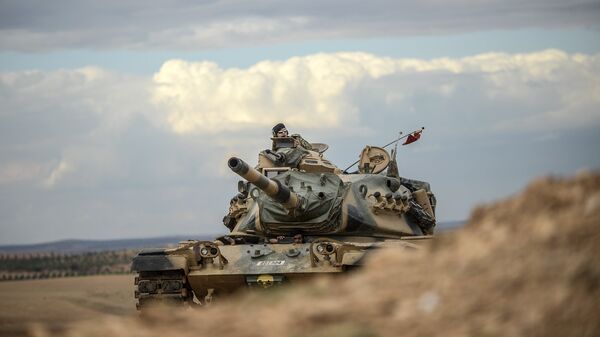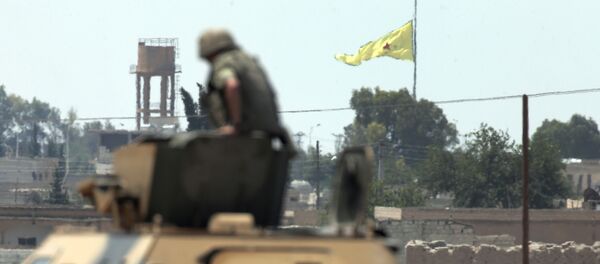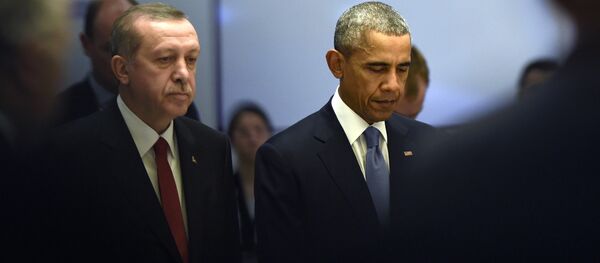The hawks backing the Turkish "government have already started to celebrate 'the new war of independence' in the name of 'revenge for the suppression of Turks as leaders of Muslims' and the end of the 'cursed 20th century' to go 'back to future glorious times,'" she asserted.
Turkey has backed radical groups, who are fighting to overthrow Bashar al-Assad. Ankara has also allowed Turkish citizens to travel to the Syrian battlefield. And, finally, the ruling AKP party has launched a military campaign against the Kurds in Turkey and elsewhere, including the Democratic Union Party (PYD) and the People's Protection Units (YPG).
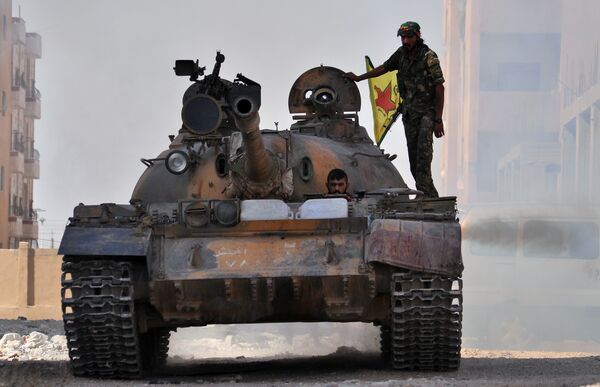
Turkey has recently made every effort to convince the United States that the YPG is "no different" from Daesh and should be dealt with accordingly, Nuray Mert noted.
This could be the reason why the Turkish authorities tried to pin last week's bombing in Ankara on the YPG, although the Turkey-based Kurdistan Freedom Hawks claimed responsibility for the attack, which left 28 people dead. The PYD and the YPG have denied any involvement in the assault.
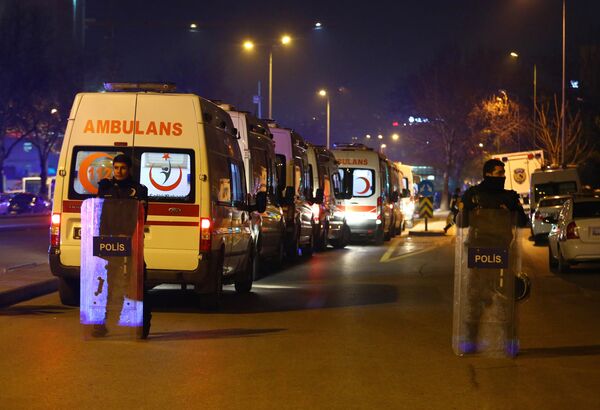
Recent developments "will further portray Turkey as a trouble maker that is doing everything to complicate matters for its allies and hinder the fight against [Daesh]," the analyst observed. Ankara's "constant refusal" to cooperate genuinely "seems to be working against" Erdogan, "further discrediting Turkey as an ally and further diminishing its role as a serious actor in regional politics."
Nuray Mert also added that the Syrian president and the Kurds are not the only "enemies," whom Ankara is fighting against.
Recep Tayyip Erdogan and the AKP are "acting as if we are also involved in a domestic war against 'internal enemies' – namely anybody who does not offer unconditional support to the governing party and its leader," she observed. "In short, Turkey's rulers seem to have too many wars to fight against too many enemies."

